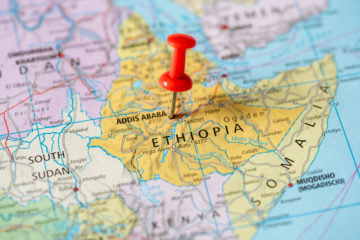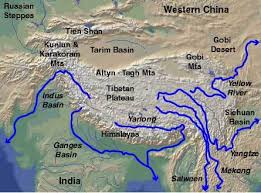
The Global Inequity of Emissions Consumption: Carbon Accounting as the Future Stepping-Stone in International Climate Negotiations
As the host of the postponed COP26 climate summit, the UK has set out the ambitious goal to convince all countries to commit to reach net zero emissions as soon as possible within their mandatory climate targets. Reducing overall emissions remains the paramount task of global climate governance. However, an overlooked but defining question concerns carbon accounting—the methodology of how national CO2 emissions are assessed. The conventional territory-related production approach, which has traditionally been used in climate governance, stands in contrast to an often ignored consumption-based approach, which more closely captures emissions embodied in the domestic end-use of energy and goods. This article lays out why the seemingly dull and technical matter of carbon accounting has the potential to become the future stepping-stone for a global consensus on …

Lockdown and the Climate Crisis
In 2020, lockdowns around the world have reduced energy use and carbon emissions on an unprecedented scale. However, the current COVID-19 outbreak may be a double-edged sword in the fight against climate change. Individual countries are imminently due to report their carbon reductions, as outlined in the United Nations-brokered Paris Agreement. Although pre-Coronavirus crisis global greenhouse gas (GHG) emissions are expected have grown by 1.9%, recent CO₂ calculations in Europe are predicting a surprising scenario: countries may actually hit their stated reduction goals. For instance, the German climate target for 2020, which until February was considered unattainable, should now be met. Due to this year’s mild winter, and, above all, the Coronavirus crisis, the target of 40% CO₂ savings—unlike climate change targets …

How Natural Resource (Mis-)management in the Nile River Basin May Threaten Stability
As the Grand Ethiopian Renaissance Dam (GERD) nears completion, the Nile River Basin is at a crossroads. The next few months will be consequential for relations between countries in the river basin—notably Ethiopia, Sudan, and Egypt—because dam management upstream could have consequences for the supply of water downstream. Although the three countries began discussions after the project was announced in 2011, they have yet to reach an agreement on how the new reservoir should be filled and managed. Despite the absence of an agreement, Ethiopia intends to begin filling the reservoir this July. This article describes the competing perspectives between countries, explains reasons for the lack of an agreement, and provides recommendations for addressing the challenges of the GERD. If …
Stronger Government Management and Policies are Necessary to Save Jakarta
On New Year’s Eve, Indonesia’s capital, Jakarta, was hit by the worst flooding since 2013. The disaster caused damages and insecurity across the metropolitan area, pushing thousands of families to try to temporarily relocate. Unfortunately, transportation systems were paralysed. The Transportation Ministry’s air transportation Director-General, Polana B. Pramesti, closed the Halim Perdanakusuma Airport because its runways were inundated by up to 80 centimeters of water. According to the National Disaster Mitigation Agency (BNPB), at least seven sub-districts in Jakarta were pounded by floods. Jakarta has long known to be vulnerable to ruinous floods. Empirical evidence shows 95 percent of North Jakarta will expectedly submerge by 2050. This is part of what motivated President Joko Widodo to announce on 26th August …

Trump has compromised climate security strategies
Much has been said about the global environmental, economic and leadership consequences of United States President Donald Trump’s decision to withdraw from the Paris climate agreement but there is also a national security dimension. Trump’s decision ignores an important development in global security centred on climate change. The US had been in a prime position to link climate to international security which, rightly or wrongly, could be leveraged for foreign policy in pursuit of climate security. The US has been a leader in climate security, an approach rivalling climate justice reasoning in climate politics. For much of the history of international climate politics, there has been a dominant discourse of climate justice. Early environmental conferences focused on planetary justice and …

Carving up the climate communication landscape
Warren Pearce’s new ‘Making Climate Social’ project seeks to investigate the ‘contributors, content, connections and contexts of social media climate change communications’ in order to determine ‘what the social media revolution might mean for the tricky relationship between science, politics, and publics.’ Warren recently invited me to take part in a workshop to discuss his project, and this post arises out of that meeting. Apart from providing an excellent opportunity for alliteration, what can research into social media tell us about the ‘contributors, content, connections, and contexts’ of climate communication? Four types of participation In considering that question, I have been thinking how to classify the different types of participation in climate change discussions. To this end, I adapted a …

Angola’s Perfect Storm
In a new article for Foreign Affairs, I discuss the perils of Angola’s reliance on declining oil revenues. Here are the first few paragraphs. In early 2014, Angola, sub-Saharan Africa’s second-largest oil producer and third-largest economy, was flush with cash and confidence. The economy had expanded tenfold over the previous decade, and the government, which in 2002 won a resounding victory in the country’s long civil war, was unchallenged at home, a towering presence in regional politics, and a major investor abroad, including in Portugal, the former colonial power. Its national reconstruction agenda funneled tens of billions of dollars into infrastructure and transformed Luanda into a would-be African Dubai that attracted thousands of expatriates. The rule of Angolan President José Eduardo …

Is Water a New Flashpoint for Asia’s Rising Giants?
In the past, India and China have disputed numerous issues, from trade to territory. Notably, in 1962, disputes over their Himalayan border regions sparked the brief Sino-Indian War. In the 21st century, a new issue has the potential to become a flashpoint between the world’s most populous nations: their shared rivers.
China has planned, and in some cases begun construction on, major hydropower and water diversion projects in its southern regions, including Tibet, which is making the water security of its downstream neighbors more fragile. The glacial Tibetan Plateau, largely controlled by China, is the source of rivers that supply water to approximately 1.5 billion people. Many of Asia’s major rivers—including the Mekong, Brahmaputra, Yangtze, Yellow, Indus, and Salween Rivers—begin in the Tibetan Plateau, and supply water to people living in India, Pakistan, Bangladesh, Afghanistan, Nepal, and mainland Southeast Asia. Thus, China exerts powerful hegemony over Asia’s water resources.
China views the development of rivers originating within its borders as a matter of national sovereignty, not international cooperation. According to one telling Chinese proverb, “Upstream doesn’t suffer.” China does not have river treaties with other nations, making downstream countries vulnerable to water supply disruptions and other environmental damages. In the absence of treaties, downstream nations have no forums for formally resolving water disputes with China, and cannot use international legal institutions to ensure they receive their fair share of water.









